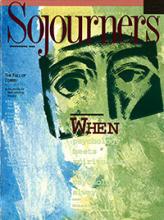Introduction by Joyce Hollyday
More than a decade ago I drove to Mount Saint Benedict Priory in Erie, Pennsylvania, the place where Joan Chittister was then prioress, hoping to find some rest and quiet and prayer. I found much more.
I found there the ancient charisms of monasticism echoing in a modern voice: hospitality, justice, prayer, mercy, generosity, joy, the sharing of meals -- and of much, much more; the sharing of lives. Community. I found a place rooted in the richness of tradition and steeped in the strength of womanhood. Within those walls I discovered a rich symphony of the marks of God's presence.
I went back to Erie again, and again. The priory became a second home, and Joan Chittister a mentor and sister. I have learned a great deal from Joan -- not only in her role as a spiritual leader, but also in the moments when she lets her hair down and teaches me about joy -- whether she's rooting wildly for the Cleveland Browns football team or pulling in fish from Lake Erie.
I found signs there in Erie of a reverence and gratitude and celebration of every life, extended toward family, friend, and stranger -- indications that life can be gentle and joyful.
Joan Chittister embraces all that she does living that truth. She is an author, a psychologist, and a communications theorist. She has served as president of the Conference of American Benedictine Prioresses and is currently the director of Benetvision, a research and resource center on contemporary spirituality. She is an international lecturer, just back from Hungary and on her way to Austria. We are glad she was able to work Grand Rapids into that schedule.
Read the Full Article

